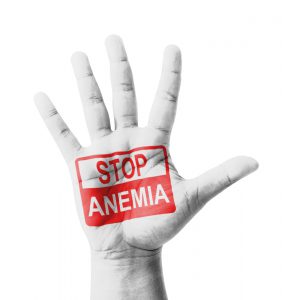The Red-Blooded Trivium
I gave the following talk at the end of February for the Information Night at Evangel Classical School. If you’d prefer to watch the talk instead of read it, I won’t be offended.
 How would you describe most modern education? A lot of parents and professionals (and employers) agree that there is a crisis, but there is little agreement on the cause or the cure. So many students graduate from high school with pale interests, foggy thinking, and sickly convictions. If they could stand up, they wouldn’t know where to stand. They have educational anemia.
How would you describe most modern education? A lot of parents and professionals (and employers) agree that there is a crisis, but there is little agreement on the cause or the cure. So many students graduate from high school with pale interests, foggy thinking, and sickly convictions. If they could stand up, they wouldn’t know where to stand. They have educational anemia.
I recently had the opportunity to learn about anemia, its causes, symptoms, and treatments. Due to a yet-to-be-identified source of internal bleeding, I hemorrhaged too much blood to sit up, let alone stand or walk around. Every time I tried to get vertical my blood pressure dropped and my heart rate doubled trying to compensate for the loss in volume and decrease in red blood cells.
That’s anemia: a deficiency in red blood cells or hemoglobin in the blood. The red blood cells carry oxygen to the body parts and, if the body doesn’t get oxygen, it shuts down. My body gave up, including my brain.
As I said, I couldn’t stay upright, I had almost no energy, I processed questions as quick as a cement truck, and, as my oldest daughter described, I was “as white as a new pair of tights.” Peaked, numb, and weak, like the typical college freshman.
To treat anemia, first you need to stop the bleeding. I’d say the biggest cause of educational bleeding is teachers telling, or acting like, none of it really matters. If everything in the universe came from nothing and moves with no personal purpose, then it doesn’t matter. At ECS we believe that Jesus is Lord, that by Him all things were created, that He’s invested and interested in it all. He gave it to us as a gift, to receive with thanks, to study, and to use for good as a reflection of Him. Nothing is neutral, nothing is useless. There’s a bigger reason to be at school than standardized testing.
Once the bleeding stops, though, there’s still more required to return to health. I’ve learned that in order to replenish red blood cells, the body needs iron. But the body doesn’t doesn’t provide it’s own, it must get it from the outside. There is a breathtaking variety of iron sources: beef, chicken, turkey, shellfish, broccoli, sweet peas, tomatoes, lima beans, potatoes, green beans, leafy greens, beets, and cabbage. There’s no reason just to swallow a pill.
To make educational blood cells we need the iron facts. Think of iron like grammar, the building blocks of learning. Grammar is the first stage of the Trivium and takes place during the early grades. Students are taught math facts, English jingles, characters of history, scientific data, Latin chants, and Bible stories. It doesn’t have to be bland or stale. We feed it to them in songs and sound-offs, reenactments, toga days, and coloring pages.
Boredom is not neutral–it is the fertilizing principal of unloveliness. (Robert Capon, The Supper of the Lamb)
It takes a lot of work to take in all God has given us to enjoy and use. It’s work, it can be fun, but it certainly isn’t boring. We’re feeding students with the loveliness of God in His world and work.
Around the transition to Junior High comes the transition to the second stage, the Dialectic or Logic stage. We might say this is when the red blood cells are formed and readied to carry the load of oxygen. The Logic stage includes formal logic, how to mind one’s Ps and Qs, how to distinguish donkeys and elephants. (Imagine how helpful this would be to a voting populace.) We encourage them to investigate apparent contradictions and difficulties. We expose them to different opinions and train them to love the true, the honorable, the just, the pure, the lovely, and the excellent.
Then the final stage of the Trivium is the Rhetoric stage. They take the facts, fit them together, and present them with persuasion. Though they’ve already been writing by this time, now they are polishing papers as well as unscripted presentations. They are ready to stand, ready to take a stand, ready to run. But unlike the empty bombast of so many cultural talking heads, our students talk with lifeblood.
So we get students to soak up truth, sort out arguments, and speak with heart, stamina, and backbone. They stand upright in a bent culture. It takes a lot of work to treat educational anemia. They are not just ready for more learning, they are ready to bear God’s image in their generation. They’re not just surviving on Doritos and Mountain Dew, they have a life.